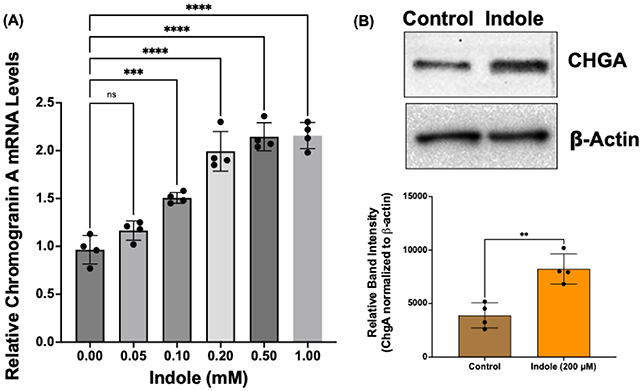Ozempic and drugs like it have done wonders for weight loss by mimicking the natural hormone GLP-1 (glucagon-like peptide-1), which helps control blood sugar and appetite. Now a new study shows how gut microbe byproducts could have the same effect.
Enteroendocrine cells (EECs) in the gut are responsible for producing natural GLP-1, and recent research has suggested a reduced number of EECs and lower GLP-1 production could be helping to drive obesity.
Using tests on rats and mini-guts grown in the lab (known as organoids), researchers from Marshall University in the US have now confirmed a link between fewer EECs and obesity – and found a way to get the gut to make up the shortfall.
Related: Ozempic-Like Drugs Could Treat Chronic Migraines, Trial Finds
"This points to a potential therapeutic strategy that leverages the gut microbes to improve metabolic outcomes in obesity," says biochemist Alip Borthakur of the Department of Clinical & Translational Sciences at Marshall University.
The researchers turned to supplements of the amino acid tryptophan to fix the EEC problem. Tryptophan was already known to promote good gut health, in part through a metabolite (or biological byproduct) called indole.

What the team was able to show in their work was that tryptophan and indole could form a production line to generate new EECs, and from there, more GLP-1. In other words, it promoted a more natural way of getting the same effect as a dose of Ozempic.
Tryptophan is found in foods such as poultry, eggs, cheese, and certain seeds, and the thinking is that dietary supplements or probiotics of some kind could be used to drop the amino acid into the gut and start the necessary chemical chain reaction.
"Our findings suggest that microbial metabolites derived from dietary tryptophan can reverse obesity-associated reductions in hormone-secreting gut cells," says Borthakur.
The researchers were also able to identify a specific cell receptor, the aryl hydrocarbon receptor (AhR), through which this process occurs. That gives researchers a particular target to aim at.
Actual treatments are still a long way off, but these initial findings are promising.
Ozempic is one of a class of drugs known as GLP-1 receptor antagonists, used to treat type 2 diabetes as well as obesity. However, these treatments do come with side effects, and it would be preferable for our bodies to produce GLP-1 more naturally.
That's part of the motivation for studies like this. In recent years, other teams of scientists have identified ways to tweak gut bacteria and adapt our diets to try and boost GLP-1 production in the body.
One of the next steps will be to move these experiments out of rats and organoids and into actual human beings. While the lab tests carried out here do of course provide useful pointers for researchers, the processes and reactions inside people could vary in certain ways – which further studies can look into.
"The molecular players and signaling pathways involved in the regulation of EEC differentiation could be different in the normal and obese conditions," write the researchers in their published paper.
The research has been published in the International Journal of Molecular Sciences.
